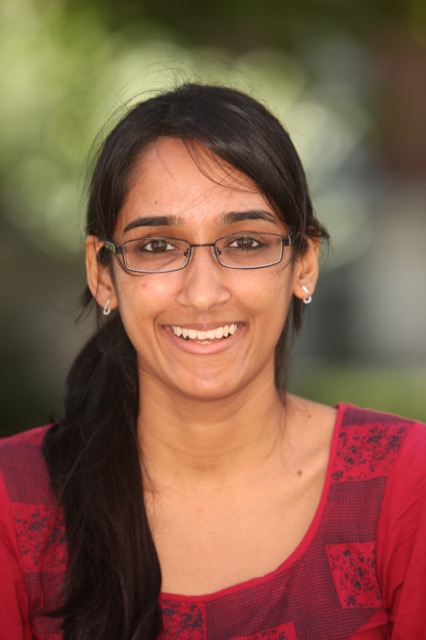
- This event has passed.
MSE Faculty Candidate Seminar: “Tuning Nanoscale Materials Using the Local Environment”
February 19, 2019 at 10:45 AM - 11:45 AM

Archana Raja
Heising-Simons Junior Fellow, Kavli Energy and Nanoscience Institute, UC Berkeley
Various nanoscale building blocks are available today for the bottom-up design of novel materials and interfaces with tailor-made functionalities. In particular, two-dimensional (2D) materials such as graphene and transition metal dichalcogenide (TMDC) monolayers exhibit extraordinary electrical conductivity and light-matter coupling. The environment in which these atomically thin materials reside strongly influences their properties. This offers a non-invasive approach to control and engineer the properties of materials on the nanoscale by tuning their local environment rather than the material itself. The interaction of 2D materials with their immediate surroundings and the resulting proximity effects will be the focus of my seminar. I will discuss effects associated with the influence of the dielectric neighborhood on the energies of charge carriers and optical excitations at nanoscale interfaces. The talk will cover the following topics:
[1] Bandgap engineering via the dielectric environment of 2D TMDC semiconductors
[2] Energy transfer between 0D and 2D systems: quantum dots to graphene/TMDC
References:
- Raja et al. Coulomb engineering of the bandgap and excitons in two-dimensional materials. Nature Communications 8, 15251 (2017)
- Raja et al. Energy transfer from quantum dots to graphene and MoS2: the role of absorption and screening in two-dimensional materials. Nano Letters 16, 2328–2333 (2016)
Biography:
Archana Raja completed her PhD in Chemical Physics from Columbia University under the supervision of Profs. Tony Heinz and Louis Brus in 2016. After spending a year as a postdoc in the Applied Physics department at Stanford University, she joined the Kavli Energy and Nanoscience Institute at UC Berkeley as a Heising-Simons postdoctoral fellow. She works in the group of Prof. Paul Alivisatos and her current research focuses on understanding quantum confinement, chemical functionalization and superlattice assembly of atomically thin nanocrystals.
